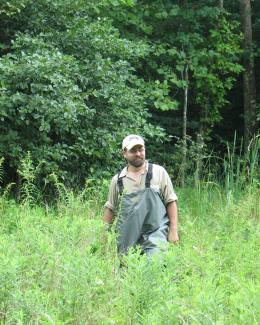Abstract
Molecular innovations in microbial ecology are allowing scientists to correlate microbial community
characteristics to a variety of ecosystem functions. However, to date the majority of soil microbial ecology studies target phylogenetic rRNA markers, while a smaller number target functional markers linked to soil processes. We validated a new primer set targeting citrate synthase (gtlA), a central enzyme in the citric acid cycle linked to aerobic respiration. Primers for a 225 bp fragment suitable for qPCR were tested for specificity and assay performance verified on multiple soils. Clone libraries of the PCR-amplified gtlA gene exhibited high diversity and recovered most major groups identified in a previous 16S rRNA gene study. Comparisons among bacterial communities based on gtlA sequencing using UniFrac revealed differences among the experimental soils studied. Conditions for gtlA qPCR were optimized and calibration curves were highly linear (R2 > 0.99) over six orders of magnitude (4.56 × 10^5 to 4.56 × 10^11 copies), with high amplification efficiencies (>1.7). We examined the performance of the gtlA qPCR across a variety of soils and ecosystems, spanning forests, old fields and agricultural areas. We were able to amplify gtlA genes in all tested soils, and detected differences in gtlA abundance within and among environments. These results indicate that a fully developed gtlA-targeted qPCR approach may have potential to link microbial community characteristics with changes in soil respiration.


